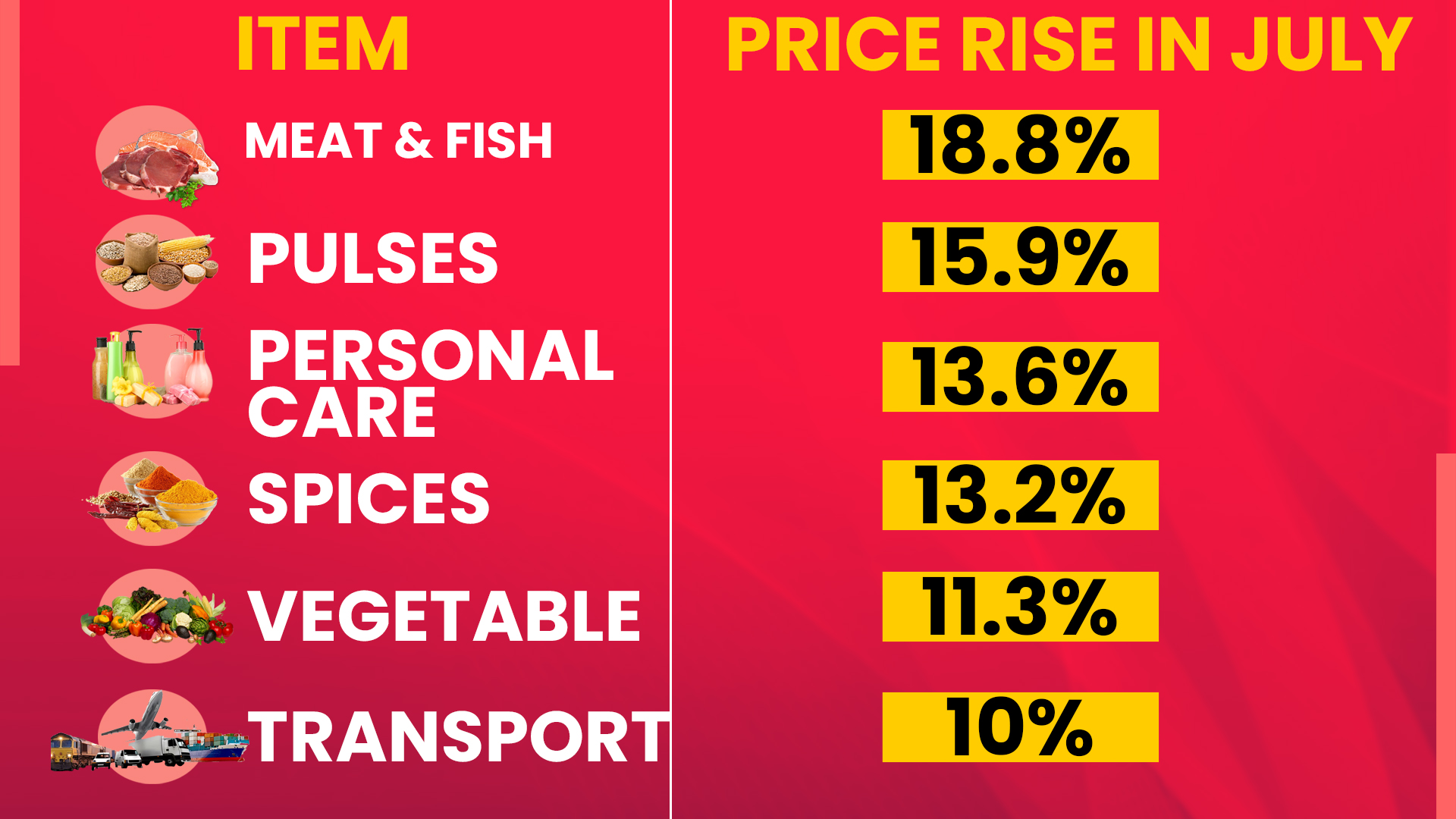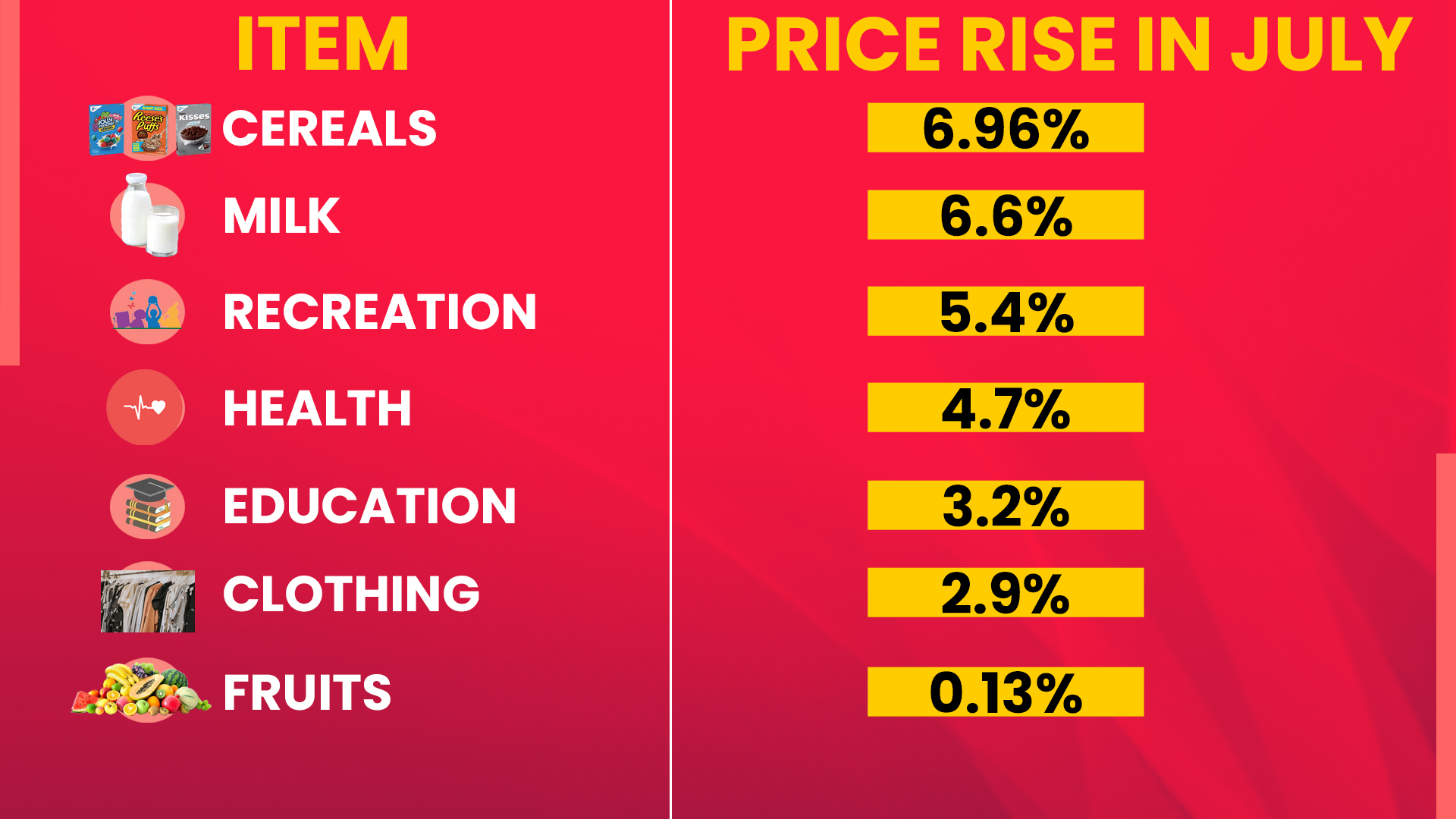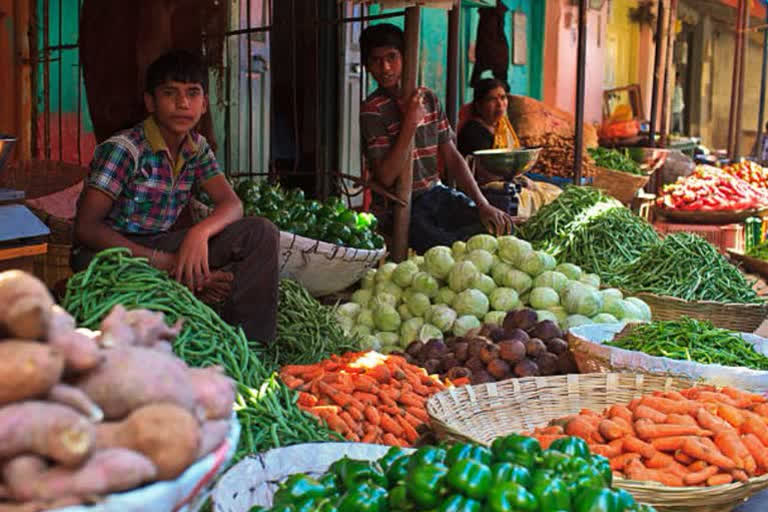Hyderabad: Household budgets have taken a hit in the past couple of months as people are paying much more for daily staples like pulses, meat and fish, spices, vegetables and even personal care compared to what they paid a year ago.
Consumer price index (CPI) data for both June and July showed that the categories mentioned above have seen a much higher rate of inflation compared with other sub-groups (like cereals, milk, fruits, education, health, clothing and recreation).
For instance, retail prices of meat and fish rose by a whopping 18.8% in July compared with a year ago. The category had seen a 16.2% year-on-year jump in prices in June as well.

Similarly, prices of pulses at retail level were 15.9% higher in July compared with year-ago levels. In June, the category had seen an inflation rate of 16.7%.
Meanwhile, vegetable prices continued their upward march, recording an 11.3% jump in July compared with a year ago. In fact, data shows that vegetables in July were much more costlier than the June levels as well. “The 14% month-on-month rise in vegetable index reflects excess rains damaging tomato and potato crops,” noted Prithviraj Srinivas, chief economist at Axis Capital.
The personal care category also saw prices jumping 13.6% in July and 12.4% in June, but that’s mainly because of rising prices of gold. “Gold has 27% weight in personal care and effects index of the CPI. And gold prices are up 40% year-on-year,” said Srinivas.

Interestingly, besides items like soaps, shampoo and personal hygiene products, the personal care and effects category in CPI also takes into account the prices of electronics that have risen after supply has been severely hit from China -- first because of the coronavirus-induced lockdown and then because of the anti-China sentiment that prevailed in the country post border tensions in Ladakh.
Read more: RBI approves Rs 57,128 crore dividend transfer to govt
A weaker rupee has also made imports of electronics costlier. The rupee has depreciated from around 72 per dollar levels in March to 75 as of July-end.
Meanwhile, spices are also getting expensive on the back of higher demand by households and medicinal industry due to their immunity-boosting properties. Prices of spices were up 13.3% year- on-year in July and 11.7% in June.
Higher retail prices of petrol and diesel have also driven up transport costs by 10% in July compared with a year ago. Rising transport costs also trigger an increase in prices for other goods and services, thereby leading to greater overall inflation.
Probably that’s why retail inflation in India stood at a higher-than-expected 6.93% in July and is unlikely to ease significantly anytime in near future. “Going forward, inflation is expected to remain elevated on account of higher food prices, increase in fuel prices and higher wages,” HDFC Bank said in its research report.
(ETV Bharat Report)



